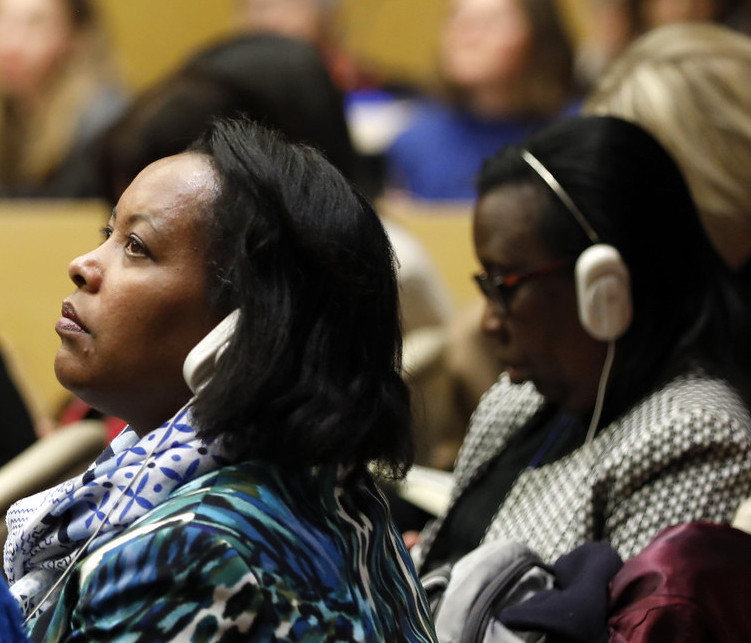Dr Lourdes Sosa discusses the categorical imperative and opportunities for inclusion and innovation.
This is the tenth blog in the 12 Days of Global Health series
I had an accident when I was five years old that broke my nose, cheekbones, and distorted my jawline. I had used a chair with wheels to reach a board on the wall. As my hands were up at the top of the board, the angle of my body weight tipped the chair’s wheels in motion and I fell to the floor with my hands still up. A surgery – in the context of limited healthcare access in a lower income country – achieved the minimum. After two more surgeries as an adult, a doctor in England re-assured me of three points. First, that I am the most interesting case they had seen after a CT scan showed a bone far behind may face calcified in an unnatural position. Second, that even in an advanced healthcare system, surgery could do no more for my quality of life. And third, that we would learn by trial and error the ideal management of my symptoms.
I have never checked the box for disability in legal papers; all I have ever needed was a microphone to avoid developing a sore throat (and subsequent infection), thus making disability assessment unnecessary. I present myself to friends as “sickly” although I accept the “hypochondriac” label. Without a diagnostic category, I make it a priority to work with the few GPs knowledgeable of my full medical history. Although I am visible to my doctor and to an extent the health system, I remain invisible to the downstream consequences of my health. While this is the case to dramatic extents for disabled people, it creates discomfort for those of use now called ‘vulnerable’.
The structure of society and its impact in business
Organisational sociologists refer to the ‘categorical imperative’ as the phenomenon where elements of the social structure that fall between social categories experience a disadvantage (Zuckerman 1999). We are aware of the difficulty of being the member of a minority. Imagine then the additional burden for those remaining unrecognised by both minority and majority groups. Social categories shape society, and society’s structure shapes value and thus businesses, in all aspects. It turns out that when consumer preferences are structured across clear movie categories, an innovative romantic-horror movie is met with disbelief (Hsu 2006). Businesses have low incentives to innovate between categories.
Social categories shape society, and society’s structure shapes value and thus businesses, in all aspects
Not surprisingly, if we have experienced the world as with or without disadvantage, the incentives for businesses have mirrored that structure. In a world where 15% of the population has a disability and the other 85% does not (BBC 2017), merchants faced with the calculation of features in products and services that create value for the former but not the latter, have been encouraged to minimum legal compliance. When 85% of customers do not mind if the other 15% receives a service, business survival focuses on the 85%.
The endless possibilities of innovating for everyone
But society evolves, sometimes at record speed through wars and pandemics; social categories change meaning, disappear, make way for new categories. Businesses that innovate keep pace with society. After all, we now love ‘dramedies’.
In democratising suffering, the pandemic has created empathy across all variables of disadvantage and inclusion. For the first time in my life, I was food insecure. I could afford food but not get it delivered, so for the first time in my life I counted cans and made dinner out of popcorn. For those of my friends who do not have a disabled acquaintance, calling me to offer food delivery was also a first. For those who can afford childcare, the struggle of working and caring for children full-time without support was also a first.
Nothing will ever make up for what we lost in this pandemic. But as our struggles converge and we empathise with others whose struggles will continue beyond ours, we can use that empathy to innovate our way into an economy with quality of life for everyone. As ‘vulnerable’ becomes a category along with ‘disabled’, many more of us will demand together that everyone’s needs are matched. Even better, as the 85% without a disability values that merchants serve those in the 15%, businesses will be encouraged to innovate for everyone.
As ‘vulnerable’ becomes a category along with ‘disabled’, many more of us will demand together that everyone’s needs are matched
I am a faculty member in the Department of Management. I research innovation tools so that all stakeholders, business owners, employees, consumers with differing levels of disadvantage, improve their quality of life as soon as possible. If you currently have tools for innovation, please post a comment so we can all learn. Innovation does not have to be costly; it just needs to be functional. Last night, I solved the absence of a tipping feature in my grocery service provider platform by taping a bill to my door when the delivery person rang to buzz them into the building. There must be a way to innovate into an inclusive future.
References
BBC, 2017. The Power of the ‘Purple Pound’ Explained. Available at https://www.bbc.co.uk/news/av/business-39040760, accessed 7 December 2020.
Hsu, G. 2006. “Jacks of All Trades and Masters of None: Audiences’ Reactions to Spanning Genres in Feature Film Production.” Administrative Science Quarterly, 51(3): 420-450.
Zuckerman, E.W. 1999. “The Categorical Imperative: Securities Analysts and the Illegitimacy Discount”. American Journal of Sociology. 104(5): 1398-1438.
The views expressed in this post are those of the author(s) and in no way reflect those of the Global Health at LSE Blog or the London School of Economics and Political Science.
Photo by Rob Maxwell on Unsplash





